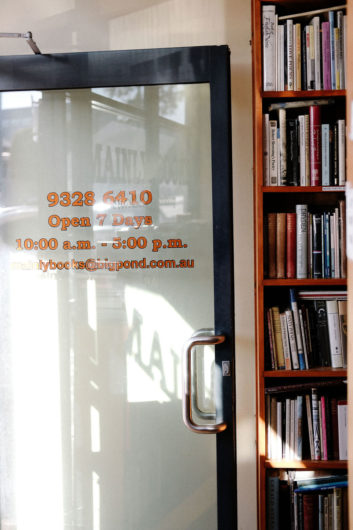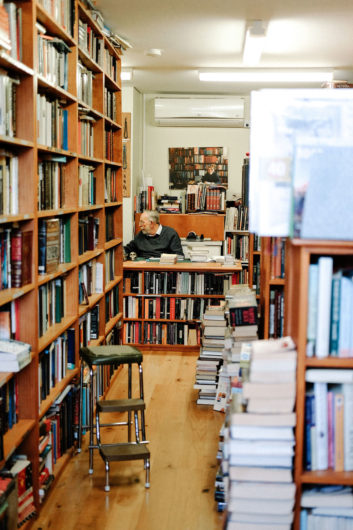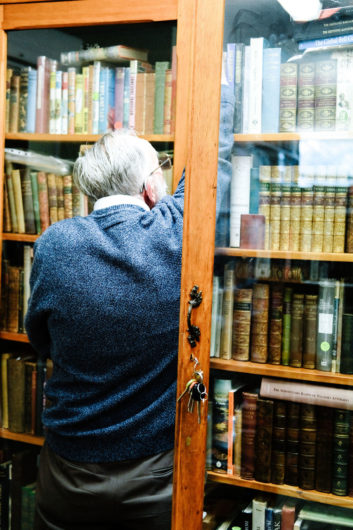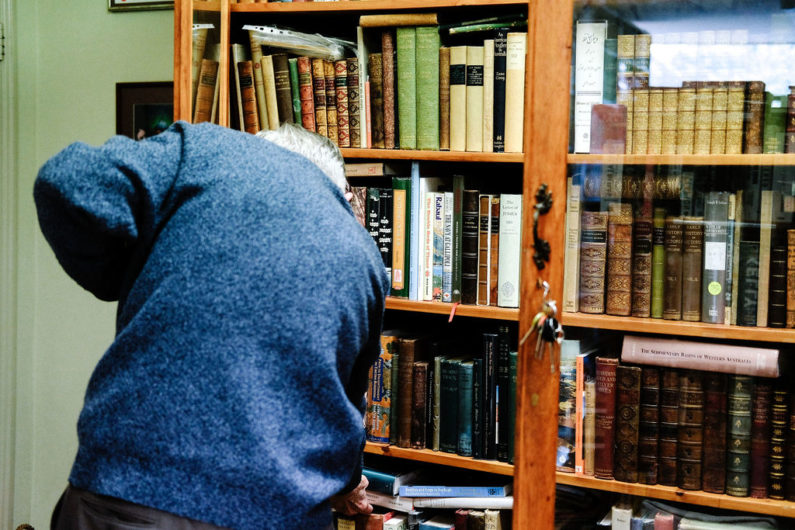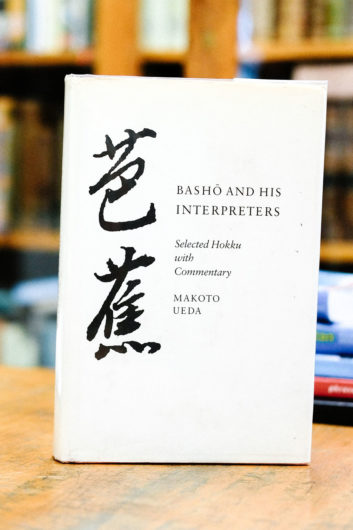In his small but bounteous bookshop on Bulwer Street, Dennis Moore pulls an old book out from a locked glass cabinet: Makoto Euda’s Bashō and His Interpreters: Selected Hokku with Commentary. He says it’s one of his favourite books among the thousands housed on the shelves at Mainly Books, the second-hand bookshop he’s owned and run since 2009. He opens the book to a page which, coincidentally, displays one of Matsuo Basho’s most famous haiku: three lines, less than seventeen syllables when translated. A mastery in the art of brevity. It’s not a surprising choice for Moore; a humble man of few words, despite the highly regarded career in pioneering Western Australia’s computing industry behind him.
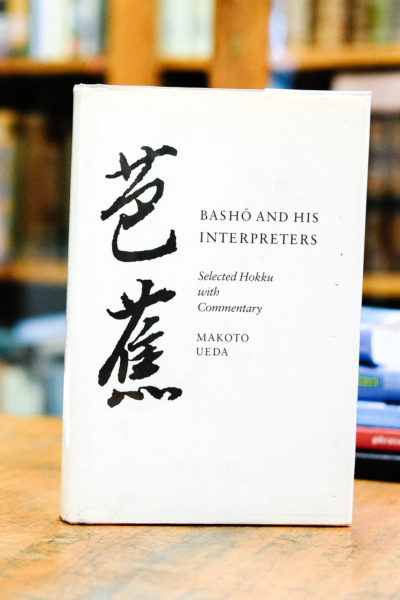
“I used to help her on weekends but when I retired, I helped her more in the shop,” says Moore. “She refused to retire, she loved the bookshop. I nursed her for a couple of years, but after she died, I had to do something. She trained me in my retirement, so I thought I’d start a new bookshop.”
The new Mainly Books opened its doors in 2009, just a few doors up the road from the original.
Prior to his retirement into the world of bound paper and print, Moore’s career trajectory followed that of the digital world. After moving to Sydney at age 10 and subsequently graduating high school there, Moore received a scholarship which sent him direct to Cambridge. He completed the Tripos in mathematics, but ultimately his path would be dictated by the advent of computer technology.
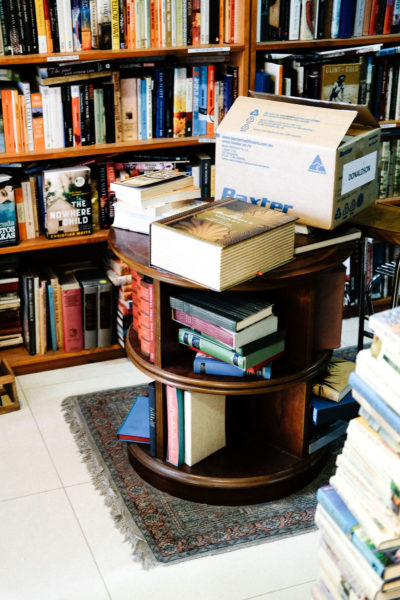
“I realised that to have a career in mathematics, you had to be a very exceptionally good mathematician,” says Moore. “Well, I wasn’t. I was adequate. So I decided to become an actuary. I joined the AMP Society as an actuarial student and I was put into the data processing department. Then, the manager came up and said: ‘We’re getting a computer in a few weeks. Here’s a manual – teach yourself to program.’ So I did.”
There were a few computers in Australia at the time; some universities had computers installed as well as a handful of government departments and CSIRO. After working for some time programming as an actuary, Moore made the move to Western Australia in 1962 to take up a role installing the first computer at the University of Western Australia (UWA). There, he presided over the university’s first Computer Centre, installed the brand new IBM 620 machine, and provided education and training for those needing to use it – who were coming in thick and fast. As technology developed (the 620 was eventually joined by the IBM 1620, and then the Digital Equipment Corporation’s PDP 6), Moore built the centre up with staff, PhD students and programmers.
“It was quite an interesting time,” says Moore. “Western Australian computing in academia developed quite differently to elsewhere, because we had strong relationships with the government departments and hospitals, so facilities were shared. Of course there was also rapid change that we had to anticipate – what happens next? What sort of computers are next? Where is telecommunications going?”
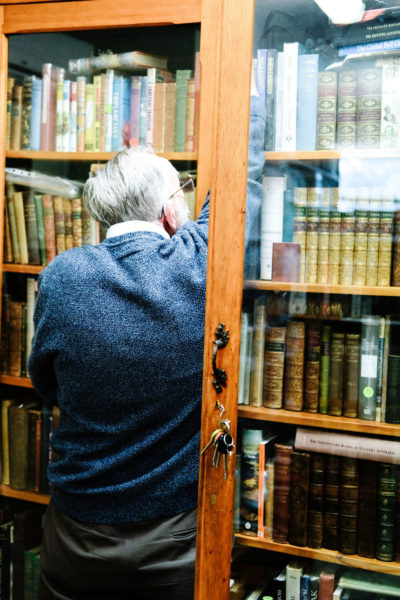
These challenges saw Moore establish the Western Australian Computing Society, which fostered greater connection and collaboration between computing professionals in the state for the first time. Moore served as the President. This later merged with the Australian Computing Society (ACS), and Moore became the inaugural chairman of the Western Australian branch. Moore’s contribution to computing was recognised with an Order of Australia in 1997, and the ACS hosts the annual Dennis Moore Oration Dinner, presenting leading ideas in computing from world-class speakers in Moore’s name.
“It has to be an honour, it is by definition, but it’s a bit embarrassing actually,” says Moore of his namesake event. “To me it’s more a great recognition for the computing society – and that’s who really put me up.”
Moore’s career in Western Australia led to many global opportunities. He ran a computer company in Malaysia for a number of years, and worked in Silicon Valley “before it was Silicon Valley,” he says, with Control Data, one of nine major computer companies in the United States in the 1960’s. He turned down a significant job opportunity to stay there, citing his wife’s refusal to have her children “grow up American” as the reason. He also spent a few years on Sabbatical in Japan, researching computer technology there. Ultimately, he was seconded to Government Computing and in 1987 was appointed Head of School of Computing at Curtin University of Technology where he remained until his retirement.
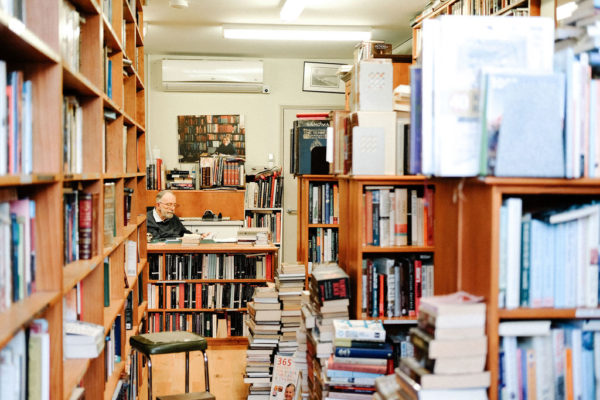
Decades on from said retirement, Moore’s interest in the continued evolution of computer science appears to remain, though he finds it troublesome.
“I’ve been retired now nearly twenty years, and I don’t really want to know about it all,” he says. “There are some areas that I have difficulty getting around. For example, I was talking to someone the other day about the kinds of super computers coming out now; they’re an entirely different design concept. But artificial intelligence demands constant evolution in computing.”
When he’s not sourcing, sorting, systematising or pricing the store’s pre-loved acquisitions, Moore turns to other hobbies of the analogue variety to pass time between customers. The Times’ cryptic crossword. Sudoku. The mathematician’s brain never rests.
Asked whether the exponential rise of technology and digitisation is leading to the demise of books or their re-emergence, Moore responds simply: “They’re still printing just as many books as ever.”

209 Bulwer Street, Perth
Open 7 days, 10am – 5pm

